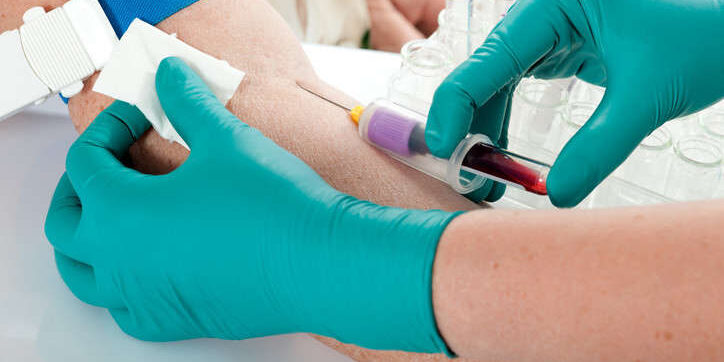Phlebotomy Technician
As a phlebotomist, you are responsible for drawing blood from patients and delivering this blood to local laboratories for testing and further check for health issues, like diseases, bacteria, cholesterol, etc. In the meantime, phlebotomy technicians are critical team members in hospitals, diagnostic laboratories, and blood donor centers. As new types of tests are developed and laboratory tech positions grow, it is an especially exciting time to begin a career in this thriving field.
The phlebotomy Technician has an expansive range of opportunities for employment. The skills learned through our school are essential to clinical laboratories, hospitals, community health centers, nursing homes, doctor’s offices, blood donation centers and other health facilities. Open the door to a rewarding career path by becoming a Certified Phlebotomy Technician (CPT). Do not wait another moment to change your life.
Program Overview
The Phlebotomy program provides 165 hours of classes, distributed in 6 weeks, alternating theoretical classes with the possibility of attending online, and hours of practice that must be face-to-face at the school. The students will be prepared to take the national certification exam for CPT (Certified Phlebotomy Technician), with the National Healthcareer Association
Program Objective
The objective of the Phlebotomy program is to provide a high quality, educational program that prepares the student to achieve entry-level phlebotomy competencies such as explaining the procedure, performing venipuncture, withdrawing blood using tubes or containers, using correct tubes w/appropriate additives educating patients on post-puncture wound care, among other duties for employment as Phlebotomy Technician, in healthcare facilities such as a hospital, laboratory, blood donation center or clinic setting.
Upon successful completion students will be prepared to take the national exam for Certified Phlebotomy Technician (CPT). This examination is provided at our facilities accredited by the National Healthcareer Association.
Some tasks phlebotomy technicians may perform include:
- Drawing blood from patients and blood donors
- Practice proper patient identification, especially when working on hospital floors.
- Decipher the best method for drawing blood depending on the specific patient.
- Evaluating patients’ ability to withstand the procedure and helping them feel comfortable.
- Explaining blood-drawing procedure to patients and answering questions
- Performing basic point-of-care testing, such as reading blood glucose levels
- Preparing blood, urine, and other specimens for testing
- Label vials with patient names and dates.
- Centrifuge blood samples, depending on if this is allowed in the state you are working in.
- Practice infection control standards always when working with patients and equipment.
- Maintaining medical equipment such as needles, test tubes and blood vials
Employment Opportunities
- Physician’s Office
- Clinical Laboratories
- Facility Hospitals
- Community Health Centers
- Private Practices and Clinic
Program Requirements:
Submit application, attend to orientation and interview to determine eligibility. Students must be 18 years of age or older. If under 18 years, a parent or legal guardian must sign the enrollment agreement. Also acquire a high school diploma, and or GED, Driver license or state identification card and social security.




